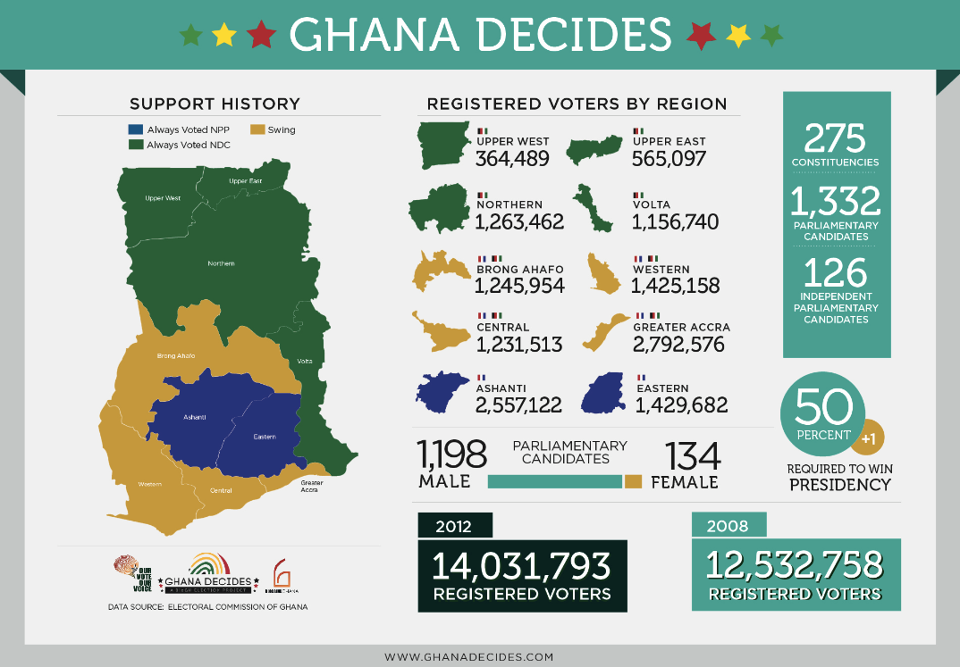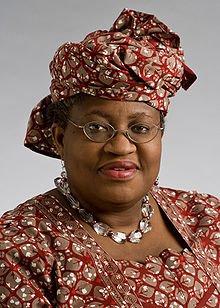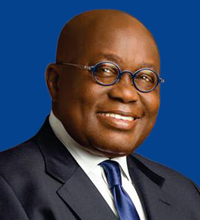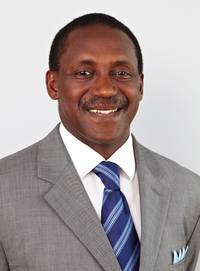By Eric Acha
8 December 2012
 image source: ghanadecides
image source: ghanadecides
Ghanians are just about to witness another smooth and peaceful election that will mark a major mile stone in the country's democratisation process. Over the last 12 years, the country's foundation of democracy has successfully enabled the smooth transition of power from one democratically elected leader to another and the fruit of this functioning democracy is the booming economy that is rapidly expanding.
With a real GDP (oil & non Oil) growth rate of 13.4 per cent in 2011, (dropping to a still impressive 10 per cent in 2012), Ghana is projected as the fastest growing economy in Sub-Saharan Africa, thanks to its strong democratic institutions, sound management of resources, a competitive business environment, a crackdown on corruption and a dozen of other investor-friendly factors
The country, poised to become a middle income country by 2020, is on the fast lane with huge investments in almost every sector of the economy (except for the manufacturing sector), with infrastructural investment projected to engulf a substantial percentage of the overall investment.
With the recent discovery of Oil, coupled with the booming Gold and Cocoa sector in the country, experts fear the country could further show strong symptoms of the Dutch Disease; however the country’s services sector still accounts for 50% of GDP. In 2006, Ghana signed the Millennium Challenge Corporation (MCC) Compact which aims to assist in transforming the country’s agricultural sector. Despite the boom, the country’s manufacturing sector is at an all time low with recent growth registered at only 1.7 per cent, far off the target of 7.0 per cent.
So whoever emerges as the winner of the current presidential elections, will face an uphill battle to revamp the manufacturing industry in the country. The country’s industry experts have accused the previous regimes of allocating insufficient resources to the manufacturing and technology industry especially in research and development (R&D).
With five consecutive democratic elections and peaceful transitions of power since 1992, there is no question on whether or not other African countries should look onto Ghana as a model to emulate.
Given all these successes, it comes without doubts to learn that poverty in Ghana is decreasing at an ever increasing rate year in year out.
Without an iota of doubts, Ghana is now one of the most attractive emerging market destinations globally for foreign Direct Investments (FDIs)
However some economists have cautioned that the country needs solid macroeconomic policies to mitigate this fast growth and help curb high inflation that risk widening the country’s deficit if not contained.
When politics is healthy, the economy is healthy and so is every other thing.



